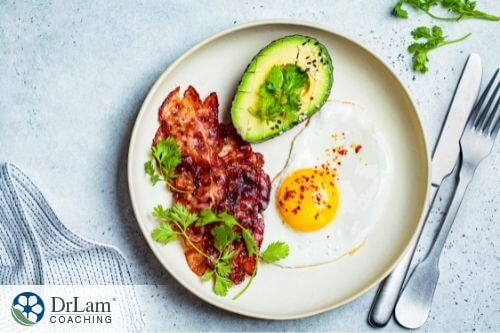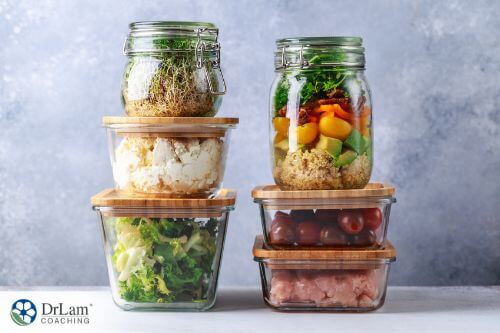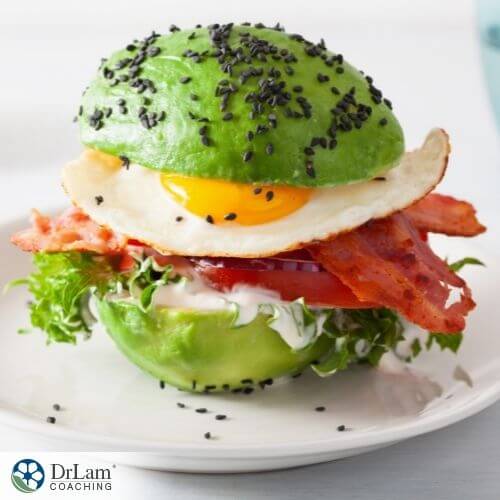For decades, diets that were low in fat and high in carbs were popular. Now the most popular type of diet is shifting to one that is high in protein and fat, but low in carbs. There are a lot of different versions of this diet on the market, from low carb diets, to a no carb diet. While some of them are helpful for some conditions, others are downright dangerous.
The truth is that there is no one diet that’s right for everyone. Everyone’s body is different and needs a different combination of nutrients. That’s why it can be so difficult to find the diet that’s right for you.
If you’ve been questioning whether the no carb diet or very low carb diet is right for you, here’s what you should know about it.
 First, it’s important to know that it is essentially impossible to cut carbs completely out of your diet. Carbs exist in most foods in varying amounts and are actually essential for energy production, as well as getting key vitamins and minerals. You shouldn't try to completely cut carbs out of your diet for this reason.
First, it’s important to know that it is essentially impossible to cut carbs completely out of your diet. Carbs exist in most foods in varying amounts and are actually essential for energy production, as well as getting key vitamins and minerals. You shouldn't try to completely cut carbs out of your diet for this reason.
So instead of planning a diet that has absolutely no carbs, in reality, a no carb diet is one that’s just very low in carbohydrates. These diets usually allow between 20 to 50 grams of carbs a day.
Carbohydrates are found in foods like pasta, bread, and sugary foods. After cutting these out, you are left with foods that are mostly fat, protein, and vegetables. There are many different types of low-carb diets, and studies show that they can help with weight loss and general health.
The idea behind the low carb diet is that it deprives the body of the carbohydrates it needs to provide the body with energy. According to this theory, the body then burns stored fat for energy rather than carbs, through a process called ketosis, which helps with weight loss. Fans of this diet also claim that eating low levels of carbs prevent excess from being stored as fat. However, there is limited evidence on the truth of these claims.
This diet is fairly easy to adjust, so you can tailor it to suit your nutrition needs and your schedule.
Here’s a general guide to how to eat when you’re on this diet:
There are a lot of foods that you will need to avoid when you’re on the no carb diet. Remember to always read a product’s ingredients list before you buy it to check for sugar content and the following additions:
Here are the foods that you need to include in your new diet:
 It might be best to avoid the following foods if you are trying to lose weight on this diet, but some low carb diets include these foods in moderation:
It might be best to avoid the following foods if you are trying to lose weight on this diet, but some low carb diets include these foods in moderation:
You may also want to be careful with cheese and nuts if you are trying to lose weight. They are fairly high-fat, and it is easy to eat too many of them.
No diet is without its risks and drawbacks, and the same is true for the no carb diet.
First, it's always a good idea to talk to your doctor before you make any major changes to your diet. They will be able to suggest variations that will help you avoid side effects or nutritional deficiencies. This diet is not appropriate for children, teenagers, or anyone with kidney disease.
A no carb diet can cause some health problems depending on your body and on the foods you eat. Some common short-term symptoms of a low carb diet include:
This diet is also associated with longer-term health issues such as:
Starting a no carb diet can involve spending a lot of time reading food labels. To make it easier to on yourself, here are some tips that might help.
Some foods are obviously low in carbs, while others could go either way. If you don’t want to spend all of your time reading food labels, then know which foods you can grab and eat fast when you need a quick meal or snack. Write yourself a list to place somewhere in your kitchen.
Likewise, if you wait until you're hungry to plan your meals and snacks, you’re likely to grab whatever foods are easiest. And these could very easily be high-carb snacks. Instead, sit down on the weekend and plan your meals for the week.
Then, prep these meals or snacks to put in the fridge, so you can grab them when you’re in a rush. Some good choices are:
 You don’t have to give up all your favorite meals. Some foods can easily be transformed into low carb options with a few changes. Some useful substitutes are:
You don’t have to give up all your favorite meals. Some foods can easily be transformed into low carb options with a few changes. Some useful substitutes are:
If you are only going to have a few carbs a day, you want to get the most out of them.
First, there are simple carbs. These are sugars or quickly convert to sugar and give you quick energy. This is the kind found in white sugar, flour, and high fructose corn syrup. These simple carbs are the least healthy. They lead to blood sugar spikes and crashes and contribute to weight gain.
Simple carbs can also be found in fruit, but these sugars are good for you because they are also packed with nutrients, fiber, and come from whole foods. Also, they typically have much less sugar than processed foods and contain complex carbs.
Secondly, there are complex carbs. These take longer to digest and help you feel fuller for longer. These are the best types of carbs to eat if you want to lose weight as they might stop you from snacking between meals. Some examples of foods that contain complex carbs are beans, apples, carrots, and whole grains.
The no carb diet could have a variety of effects on your body. Some, like improving weight loss and potentially helping insulin resistance, are good. Others, however, could cause problems, especially if your body is already under a lot of stress. Many conditions could cause this, including adrenal fatigue.
Adrenal Fatigue Syndrome (AFS) is a common condition today, which occurs when chronic stressors first demand your body produces large amounts of cortisol, the stress hormone. Then, over time, your adrenal's ability to keep up this high level of hormone production degrades, causing corresponding health issues that can be hard to identify the source of.
Your metabolism is most affected by your Bioenergetics Circuit, which consists of the thyroid, pancreas, and liver. This circuit is part of the NeuroEndoMetabolic (NEM) stress response, your body's global response to stress, and which also describes why adrenal issues manifest in other bodily systems. It also explains why a no carb diet may not be for everyone.
You will need to be very careful trying the no carb diet when you have AFS and related conditions that put your body under a lot of stress, because it may affect already existing problems. This is why it's a good idea to consult a medical practitioner who’s aware of AFS and the effects it can have on your body before you make the change to this diet.
These potential problems include:
The no carb diet is sometimes known as the ketogenic diet because it relies on ketosis, a process that breaks down fat to create energy rather than carbs. This diet often isn’t a good idea for people with AFS as it can be very physically stressful.
The process of turning fats and proteins into glucose is very energy-intensive, much more intensive than turning carbohydrates into glucose. This can turn this natural process into a stressor. And when you’re already stressed and your body has low energy because of AFS, this could exacerbate other health problems.
In some research studies, participants on a no carb diet were noted to have higher than normal cortisol levels in the body. This suggests that this diet may increase the production or release of cortisol.
This is a problem when you have adrenal fatigue because your cortisol levels will already be higher than normal. In later stage adrenal fatigue, cortisol levels are low, but at this point the last thing your body needs is more demand for cortisol, a hormone it is already fatigued from making. Thus, it could be better to choose a diet that is more gentle on your body until you have more fully recovered from AFS or other stressful conditions.
Blood sugar instability and low blood sugar is very common in AFS. This is often due to chronic inflammation, which damages cells in the pancreas, the organ that helps regulate blood sugar levels.
As the pancreas becomes dysfunctional and blood sugar levels drop, it can severely impact the liver, which may already be overloaded with toxins. The liver is responsible for signaling the release of stored-up glucose for energy. If this function is impeded, it can have very serious and debilitating consequences.
However, restricting your intake of carbohydrates may also help your blood sugar levels in that your pancreas doesn't have to put out as much insulin, therefore helping with insulin resistance.
Thus, a no carb diet is likely to lower your blood sugar, which could either help insulin resistance, or cause hypoglycemia and fatigue. If this is a potential problem for you, it's important to talk to your doctor before trying one.
People with AFS and imbalances in the Bioenergetics Circuit often complain of fatigue and low energy levels. One reason for this is low blood sugar levels.
Problems with the pancreas and liver also affect the thyroid, the third component in the circuit. The thyroid and the hormones that it releases are absolutely vital for metabolism and energy production. This is another reason for very low energy levels.
Transitioning to a no carb diet could potentially worsen low energy levels.
 A no carb diet has some advantages, such as for weight loss and lowering blood sugar. But it has risks too. It can raise cortisol levels, potentially push blood sugar too low, and worsen fatigue. This is why, if you’re thinking of trying a no carb diet, you need to listen to your doctor and to your body.
A no carb diet has some advantages, such as for weight loss and lowering blood sugar. But it has risks too. It can raise cortisol levels, potentially push blood sugar too low, and worsen fatigue. This is why, if you’re thinking of trying a no carb diet, you need to listen to your doctor and to your body.
If you decide to try this diet, here’s how:
For help finding the right diet for your body and your specific health needs, you can talk to our nutritional coaching team at +1 (626) 571-1234 or click the banner below for a free initial consultation.
A no carb diet is really just one that minimizes carbs and focuses on getting nutrients from other healthy food choices like fats, proteins, and vegetables. The goal is often to help your body burn fat instead of carbs, helping blood sugar and weight. But it's not for everyone.